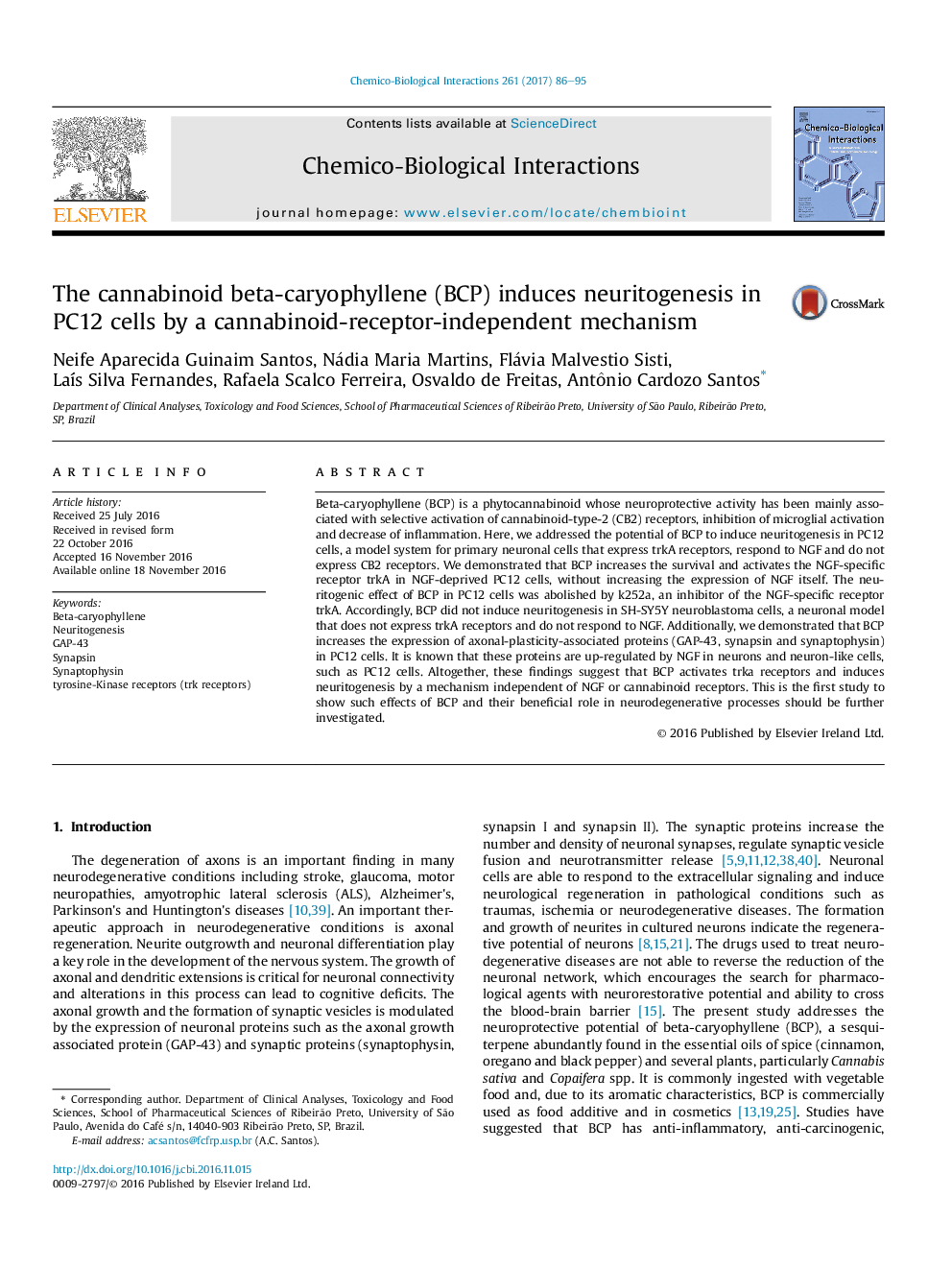| Article ID | Journal | Published Year | Pages | File Type |
|---|---|---|---|---|
| 5559431 | Chemico-Biological Interactions | 2017 | 10 Pages |
â¢BCP increases survival and induces neuritogenesis in NGF-deprived PC12 cells.â¢BCP activates the NGF-high affinity receptors, trkA.â¢BCP does not increase the expression of NGF.â¢BCP increases the expression of axonal-plasticity-associated proteins.â¢The neuritogenic effect of BCP is independent of cannabinoid receptors.
Beta-caryophyllene (BCP) is a phytocannabinoid whose neuroprotective activity has been mainly associated with selective activation of cannabinoid-type-2 (CB2) receptors, inhibition of microglial activation and decrease of inflammation. Here, we addressed the potential of BCP to induce neuritogenesis in PC12 cells, a model system for primary neuronal cells that express trkA receptors, respond to NGF and do not express CB2 receptors. We demonstrated that BCP increases the survival and activates the NGF-specific receptor trkA in NGF-deprived PC12 cells, without increasing the expression of NGF itself. The neuritogenic effect of BCP in PC12 cells was abolished by k252a, an inhibitor of the NGF-specific receptor trkA. Accordingly, BCP did not induce neuritogenesis in SH-SY5Y neuroblastoma cells, a neuronal model that does not express trkA receptors and do not respond to NGF. Additionally, we demonstrated that BCP increases the expression of axonal-plasticity-associated proteins (GAP-43, synapsin and synaptophysin) in PC12Â cells. It is known that these proteins are up-regulated by NGF in neurons and neuron-like cells, such as PC12Â cells. Altogether, these findings suggest that BCP activates trka receptors and induces neuritogenesis by a mechanism independent of NGF or cannabinoid receptors. This is the first study to show such effects of BCP and their beneficial role in neurodegenerative processes should be further investigated.
